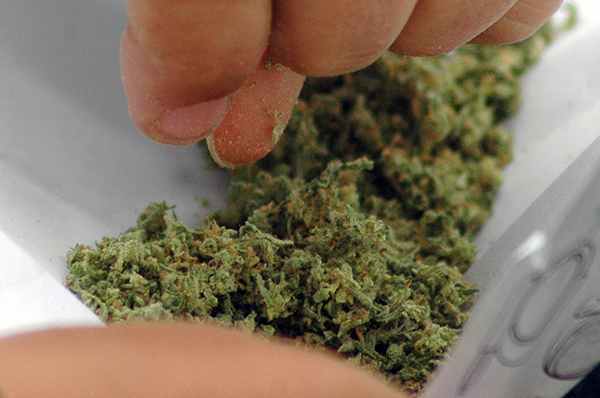Home »

UBCM passes resolution calling for marijuana decriminalization
UPDATED – with quotes from District of Sparwood Mayor Lois Halko and Village of Radium Hot Springs Mayor Dee Conklin…
The Union of British Columbia Municipalities (UBCM) is joining the ranks of elected bodies that support the decriminalization and taxation of marijuana.
UBCM delegates, representing all of British Columbia’s municipalities and regional districts, numbering about 1,500, held their 109th annual general meeting this past week in Victoria and despite roughly 200 motions likely being added to the books, Resolution A5 seems to be the one that has received the most public (media) focus.
The resolution presented:
“WHEREAS marijuana prohibition is a failed policy which has cost millions of dollars in police, court, jail and social costs;
AND WHEREAS the decriminalization and regulation of marijuana would provide tax revenues:
THEREFORE BE IT RESOLVED that UBCM call on the appropriate government to decriminalize marijuana and research the regulation and taxation of marijuana.”
Resolution A5 was put forward by Metchosin Mayor John Rann. “This vote result signals that it is time for our senior levels of government to listen to what the public and now our municipal leaders are saying: cannabis prohibition has been a failure,” stated the Greater Victoria community mayor in a release.
e-KNOW has not been able to find a vote count, though numerous reports indicate the UBCM delegates were ‘split,’ denoting a narrow victory.

UBCM president, Regional District of East Kootenay Electoral Area B director Heath Slee said he did not support the resolution.
“In spite of the accessibility of this substance essentially permeating our communities, I’m of the mindset that decriminalization of marijuana will only graduate, and lead to the use of harder drugs. I do not want to subject my grandchildren to a future where hard drugs are more readily accessible in our schools, playgrounds, or on our streets. Having worked in law enforcement, and taking many courses on the effects of regular drug use on an individual, is another reason why I did not support this resolution,” he told e-KNOW.

District of Invermere Mayor Gerry Taft said he missed the discussion and vote on the resolution but offered this take on the resolution: “I think in general terms, although there were a few people who were really upset by the resolution, and the media has gotten very excited about it- I think most of us politicians knew that it would be endorsed and it isn’t really a big issue. After all, we don’t actually have any control over what happens. It really goes to the Provincial government to then ask the Federal government. Unlikely that (Prime Minister Stephen) Harper will be “lighting one up” anytime soon.”
City of Fernie Mayor Mary Guiliano said she voted in favour of the motion.

“I advocate for medicinal use. This is a substance I am not familiar with personally; however, on researching this issue I have found that people who suffer from certain life threatening illnesses, as well as chronic ones, receive the benefit of lessening pain and experiencing a feeling of wellness while using this product. It is my personal feeling that way too much tax revenue is spent on policing the use of this product and so perhaps by making it legal tax revenue can be accrued instead of being spent. As to the belief that decriminalizing it won’t provide an end to the criminal component of this issue, I believe the benefit to people in serious physical or mental pain is still something that needs to be considered despite this concern,” she stated.
District of Sparwood Mayor Lois Halko attended the debate and vote.
“The resolution was debated for an extended period and the topic, as well as the outcome, holds a great deal of interest for British Columbians, and likely Canadians in general. Although an electronic count was not done, I would estimate that the outcome of the vote was about 60% for, and 40% against the motion. I voted against the resolution. Marijuana use interferes with perception, reaction time and co-ordination. Frequent use affects concentration and motivation and interferes with school work and job performance. I see no benefit to individuals, families, schools, workplaces and by extension to communities with these outcomes of marijuana usage,” she said.
Village of Radium Hot Springs Mayor Dee Conklin was attending the B.C. Mayors’ Caucus meeting and missed the debate, but voted in support the motion.
“I have read a lot on the issue. I voted for the decriminalization – I believe the present policy is not working. A great deal of law enforcement resources could be freed up and used to prevent more serious drug crimes. It is said that there are over half a million people in B.C. that are users, there is no way the police or the courts could deal with this. Time for change! There’s also strong evidence that if legalized, marijuana would be an economic boon for our province. Like anything this will require a lot of thought on both the provincial and federal level,” Conklin stated.
Ian Cobb/e-KNOW







